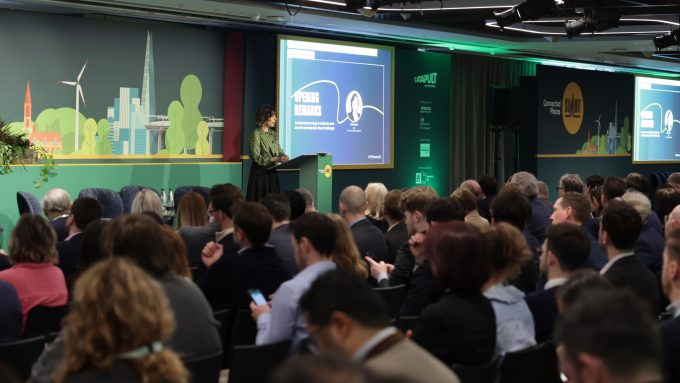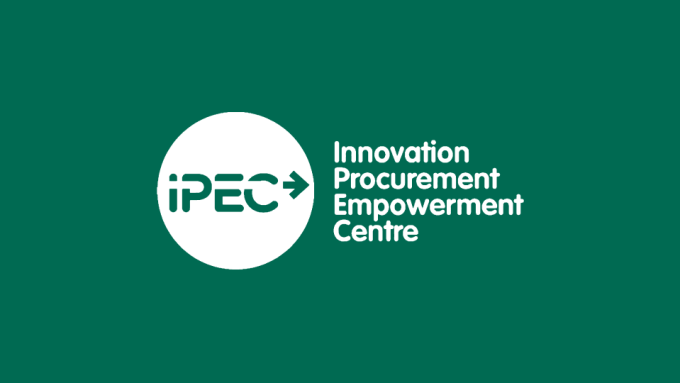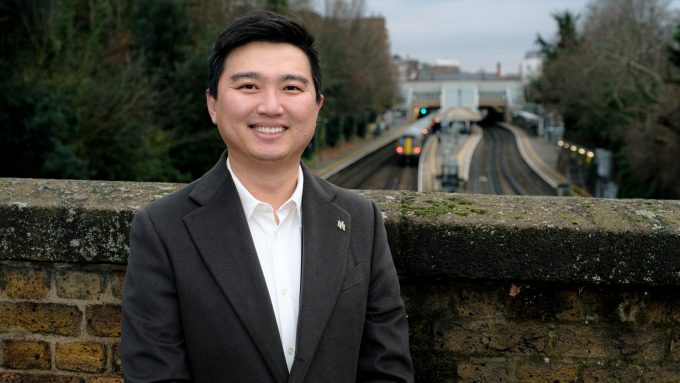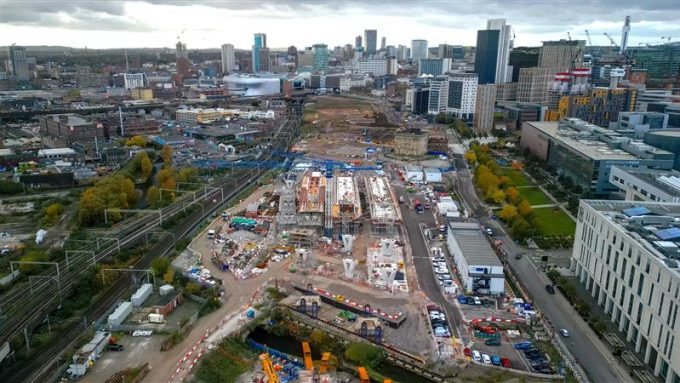
Meet the Academic championing more material reuse

“As individuals, many of us feel we should be recycling more and consuming less,” remarks Dr Luis Torres-Retamal, an Associate Professor with Nottingham University Business School. “But organisations and Governments could certainly do much more.”
And while many local authority officers understand the need to spend more on sustainable outcomes, “there can be less thought about protecting natural resources taken from the planet, and how they can be reused”.
In a bid to find out what more can be done using procurement policies to ensure that bids and tenders specify a greater reuse of existing materials for projects, Luis has embarked on a Researchers in Residence placement – supported by the Innovation Procurement Empowerment Centre on behalf of Connected Places Catapult – titled ‘Embedding circular economy principles into public procurement of net zero solutions’.
The study – awarded by the Innovation Launchpad Network+ which is funded by the Engineering & Physical Sciences Research Council – sets out to create a framework and guidelines to help local authorities introduce more of a focus on the circular economy when procuring transport systems. “Of particular interest to me is how sustainability is governed within organisations,” he adds.
“When done well, public procurement can help to encourage greener behaviours and create communities that promote good practice. Introducing better procurement policies associated with net zero solutions can also help to improve bids and tenders, especially those associated with transport.”
Considering whole life carbon
Luis recently completed a separate circular economy study focused on the use of flat glass for windows in buildings. It found flat glass to be among the most difficult items to recycle, with less than 20% of material used to create new panes having previously been used before. He has also noted that the low levels of recycling of flat glass are set against a high level of interest in net zero vehicles.
But he points out: “Local authorities who want to go green with transport should consider whole life carbon; considering full lifecycle emissions when purchasing an electric bus, for instance, or electric cars.”
Luis adds that whole life carbon must also be factored into decisions made when specifying materials used to construct and maintain transport infrastructure including roads. “Most of the technology is already there to help companies to recycle more, but there is little economic incentive to do so: it can be cheaper to send old highway material to landfill than to recycle it; and that makes no sense. Public policies need strengthening.”
Providing a nudge towards sustainable behaviour
Encouraging companies to go green could involve introducing greater economic incentives. But could it be just as effective to remind large firms of the moral imperative to act in a sustainable way; tapping into behavioural psychology?
“People within organisations exist in subcultures that promote certain behaviours, so in order for us to break bad behaviours we need to change the structure and create new incentives,” he explains. “But the problem with monetary incentives is they can lead to unethical environmental behaviours.”
He gives as example of a recycling programme he saw overseas where waste was placed into different bins, but the contents of each were actually thrown together with no separation by the local authority. “Sometimes we want to show we are doing something positive, when actually we’re not putting in the work that is required.”
A better measure of improving recycling, he says, would be to persuade companies that taking a circular economy approach makes social and business sense. “Companies can help to move the agenda, and have enough power to push Governments to doing the right thing as well.”
Luis recognises that most companies operate for profit, but adds “the private sector needs to understand that the purpose of their existence is also social. Many started out because they wanted to solve a social problem, but some have forgotten that; believing instead that they exist because they need to make money for shareholders – and this is wrong.
“Companies need to stop waiting for governments to tell them what to do, but say ‘this is the agenda, and this is what we are going to try and achieve’.”

Worldwide experience
Luis hails from a small town in Chile whose population has since more than doubled, which has made him acutely aware of how urban growth can impact on natural resources. He did well at maths and computing at school, and showed a keen interest in the environment.
At university he read organisational psychology which considers both behavioural science and statistics, and was introduced to an area of study called environmental psychology, that explores the relationship between people and their physical environment.
His first job was at a manufacturing company making glulam laminated timber boards. He worked in the human resources team – leading several projects to do with community relations, training and development, and corporate social responsibility – and helped to introduce new processes to encourage responsible management practices.
After four years he was ready for a change of direction, so moved to Spain and secured a scholarship to study a Master’s degree in Barcelona. He also worked in the city’s port, leading on sustainability efforts, and remained an external advisor for several years.
He came to the UK in 2013 to study a PhD in corporate social responsibility at the University of Nottingham, before getting the chance four years later to work at one of the university’s overseas campuses in China. Luis worked as a lecturer and became an Assistant Professor, focusing on corporate social responsibility, corporate governance and the environment.
In early 2020 he returned to the UK to join the Nottingham University Business School, where his focus has been on decarbonisation through the identification of policy enablers for sustainable business practices, and on the 'just transition' through the study of labour inequalities.
While doing so, he studied towards a Master's in environmental law and sustainability to further understand the governance challenges of moving the sustainability agenda forward.
Luis was introduced to Connected Places Catapult through a colleague in the university’s Engineering Faculty and says the experience has been very positive.
“Academics can sometimes be very focused on research, rather than application, so the Catapult has helped me to make connections to explore how I can look beyond research findings,” he says.
“I am keen to move forward the sustainability agenda by integrating key social and environmental issues, not only circularity in transport procurement but in other sectors too, and become a recognised voice in the field. It is important for academics to have a foot in the real world, as well as their university – and to want to make life better for all.”
Find out about our latest Researchers in Residence scheme, which allows academics to work alongside Catapults on a project or activity in an area of strategic importance. To be alerted about opportunities at Connected Places Catapult, join our Academic Network. Read more about the work of the Innovation Procurement Empowerment Centre.





